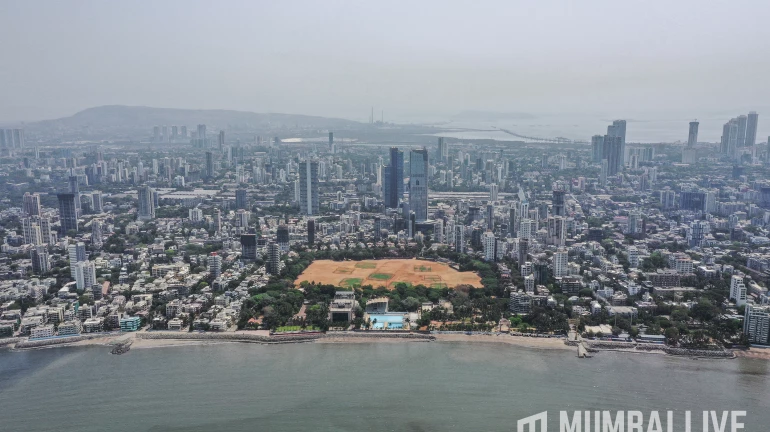
Prime-minister Modi announced a nationwide lockdown on 24th March 2020 owing to the COVID-19 virus that had afflicted the global population. The months to follow this announcement were cataclysmic for the Indian economy with the GDP plummeting to negative figures at the backdrop of the worst global recession since 2008.
The initial months of the lockdown coupled with the liquidity crunch due to the collapse of the NBFCs resulted in a devastating domino effect on the already limping real estate industry in Mumbai. The exodus of the migrant workers, lockdown restrictions on the construction sites, and languid sales added to the woes of the city’s developers. Moreover, increasing unemployment and unavailability of jobs further reduced the demand of the homebuyers and traditional property investors.
As Mumbai slowly re-adjusted to the ‘new normal’, the property markets began to show miscellaneous signs of recovery. The reduced demand influenced the odds in favour of the homebuyers along with a stamp duty cut during this Diwali resulting in more sales. A few months into the lockdown and the city’s real estate sector was clawing its way back to being the preferred long-term store of capital and investment for Mumbaikars.
The sector experienced a total sale of 22,827 residential units between September 2020 and November 2020. A report by Propstack observed that property registrations in Mumbai stood at 6,433 in December 2019, plunged to 3,798 in March 2020 in the wake of the lockdown, and gradually increased to 9,031 in November 2020. This upswing can be noticed due to several factors such as families recognizing the need for larger living spaces during the course of the lockdown, lower stamp duty charges, demand economics, all-time low home loan interest rates, lucrative incentives by developers on booking amounts and refund policies, and relaxations in government compliances and premiums.
According to Knight Franks ‘Prime Global Forecast 2021’, property prices in the top 22 global cities are predicted to increase by 2 per cent in 2021. Howbeit, the report states that the prices in Mumbai’s prime residential market may lessen by 3 per cent and the demand for property units will be more elastic. The remarkable recovery in the last two quarters of 2020 and the booming demand for affordable housing have radiated promising signs for the market in 2021.
Certain unnamed brokers and agents have said that to increase cash flow, developers are positive to reduce prices and offer discounts; a luxury 3-bedroom apartment in Lower Parel has priced upwards of INR 9 crores in 2019 and would now cost around INR 7 crores in December 2020.
To boost the sector further, it is very likely that the Municipal Corporation of Greater Mumbai will halve all premium costs levied on the developers. The premiums paid by the developers include premiums for FSI (floor space index), fungible, open space deficiency, the additional ground covered for construction, elevators, staircases, lobbies, and construction waste among others; these account for a major component of the up-front costs to the MCGM. Compared to other Indian cities, the MCGM collects the highest number of premiums. Thus, this move checks the classical concern of liquidity crunch on part of the cash-starved developers and might ensure that projects are completed in good time.
The stamp duty and registration charges are a considerable addition to the purchase amount of residential and commercial units in Mumbai. On 26th August 2020, the Maharashtra government decided to reduce the stamp duty from 5 per cent to 2 per cent till 31st December 2020; the same would be realtered to 2 per cent from 1st January 2021 to 31st March 2021. This cutback will deflate the allied costs attached to the purchase amount, thereby stimulating the demand and luring homebuyers to invest in real estate in 2021.
Mumbai’s developers also got in on the act by introducing innovations and unique amendments to better their plight. The introduction of unconventional tactics and reforms into the real estate sector saw the professional builders stand guard against the insincere ones. The concept of theme-based projects such as senior homes, family-friendly layouts, etc. empowered consumers with ample diversity in their choice of home. Moreover, to further entice the potential clientele, the inclusion of recreational spaces, all-day security surveillance, backup power generators, and swimming pools have become industry standards which were considered plush amenities only a few months back.
The financing options offered by the builders have been reasonably enhanced in the manner of deferred payment schedules, discounts on new launches and additional parking slots, compressed flat sizes to augment affordability, no floor-rise cost, worthwhile refund arrangements, and partnerships with banks offering mouth-watering home loans. By the same token, income tax rebates have been facilitated on home loans making it more conducive for fence-sitters.
Additionally, the correction of prices across segments including luxury has made buyer choices more affirmative towards the real estate industry. The economic rebound post the lockdown combined with positive investor sentiment has further rejuvenated the Mumbai sector.
The setting of the real estate sector in 2021 in Mumbai has made it reassuring for consumers looking to buy their dream home and/or contemplating a secure investment opportunity.





